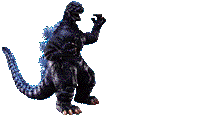Please choose a vault from below or make a deposit...
n. Science - [from Latin scientia from scire to know] A branch of knowledge based on
objectivity and involving observation and experimentation.
n. Technology - The application of knowledge to meet the goals, goods, and services
desired by people.

 science and technology > Software
science and technology > Software
 science and technology > Hardware
science and technology > Hardware
 science and technology > What-Is-What
science and technology > What-Is-What
 science and technology > Nerd Arts
science and technology > Nerd Arts
 science and technology > New Scientist
science and technology > New Scientist
 science and technology > The Journal of Life Sciences
science and technology > The Journal of Life Sciences
 science and technology > RentAUrl
science and technology > RentAUrlIn its widest sense formulated knowledge, a knowledge of structure, laws, and operations. The unity of human knowledge may be artificially divided into religion, philosophy, and science. Science and philosophy, as presently understood, have in common the quality of being speculative, as opposed to religion, which in the West is supposed to be founded merely on faith and moral sentiments. The present distinction between science and philosophy lies largely in their respective fields of speculation. What is known as modern science investigates the phenomena of physical nature and by inferential reasoning formulates general laws therefrom. Its method is called inductive and its data are so-called facts -- i.e., sensory observations; whereas deductive philosophy starts from axioms. Yet a scientist, in order to reason from his data at all, must necessarily use both induction and deduction.
Modern science has limited its field of study to the laws of physical nature; but in the 20th century the illusive and entirely phenomenal nature of matter and energy, formerly assumed to be eternal and indestructible, is better realized by scientists who have traced the chain of physical causation to a point beyond physical limits altogether and admit that the physical world consists of phenomena occurring in an ultraphysical substance.
In modern sciences dealing with biology, evolution, and anthropology, legitimate inference from facts has been much interfered with by preconceived ideas. Modern science suffers from its failure to see the necessity of postulating an astral or formative world behind the physical, this astral world being in itself but one stage in a rising scale or ladder of invisible worlds. To ascertain the facts upon which to build a true inductive system, we must admit the existence in man of means of direct perception other than those afforded by the physical senses.